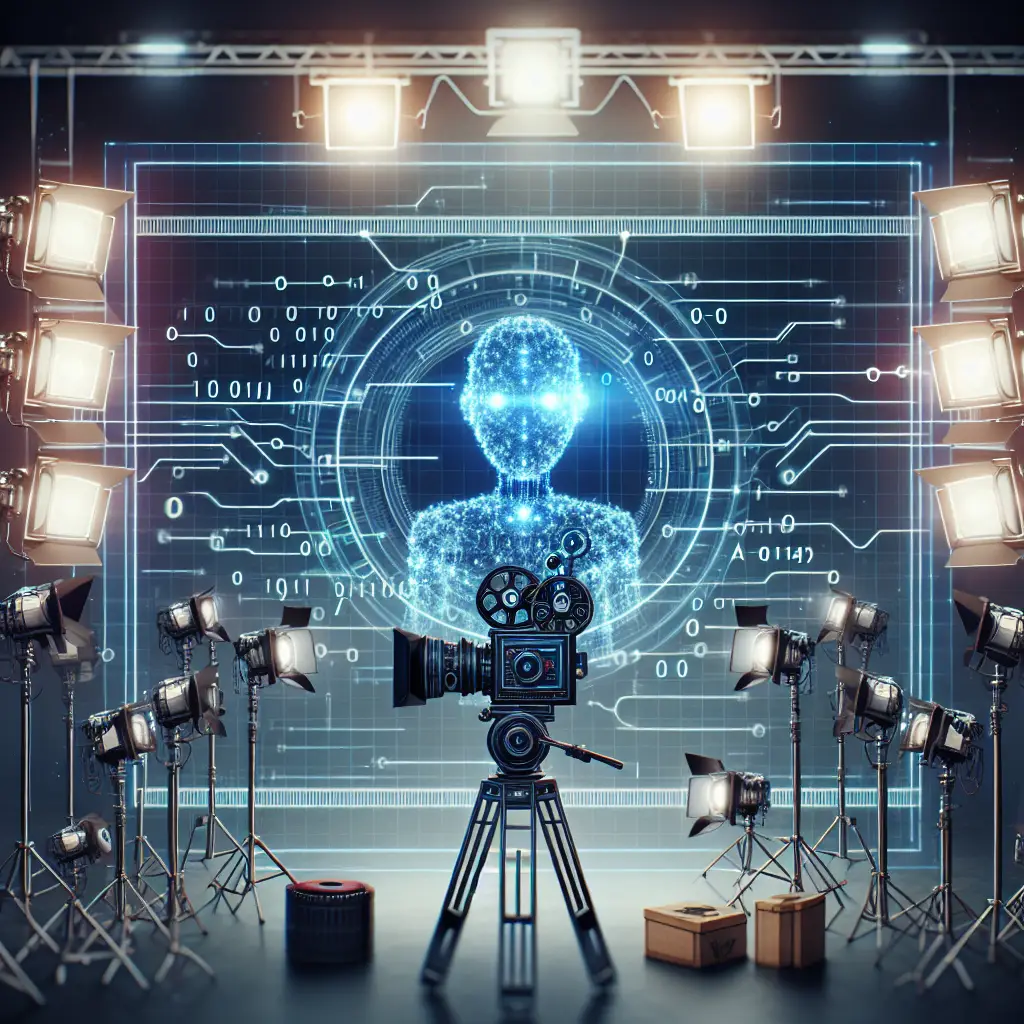Gone are the days when film production was a process purely steeped in human creativity and craftsmanship. Today, a new player holds center stage in many film studios: artificial intelligence (AI). Increasingly, filmmakers are leveraging AI to streamline their workflows, enhance storytelling, and push the boundaries of visual effects. From script-writing to editing, AI is contributing to a new era in film production.
AI is at the crux of various exciting advancements in filmmaking. Machine learning algorithms, a subset of AI, are custom-tailored for specific tasks. These tasks may include forecasting box office sales or even predicting the likelihood of a film’s success based upon its script. Tech giants like Google and IBM are taking the lead in blending AI with film production. Their AI platforms, such as IBM’s Watson, have demonstrated their prowess in improving movie trailers and simplifying the editing process.
In storyboarding and scriptwriting, AI is proving to be an effective asset. Platforms like ScriptBook harness AI to analyze scripts, predict audience reception, box office performance, and generate detailed reports about a script’s viability. Such insights help filmmakers fine-tune their screenplay and forecast their returns, thereby reducing risks associated with heavy investments.
Collaboration between AI and human ingenuity have led to evolution in cinematography and visual effects. For instance, AI can assist in movie production by creating realistic computer-generated imagery (CGI) characters. AI-driven software can learn from existing human movements and facial expressions to render characters even more lifelily, thereby elevating the nuances of storytelling.
AI is also helpful in creating precise visual effects. Convolutional Neural Network (CNN), a type of machine learning algorithm, are used to generate Automatic Rotoscoping, an effect used in film production for extracting objects from moving image sequences. This technology has made labor-intensive VFX tasks more manageable, efficient, and cost-effective.
AI is empowering filmmakers in post-production editing, a phase often regarded as the film’s final rewrite. AI tools, including facial and voice recognition, are assisting in post-production functions like automatic video editing and fast content logging. Additionally, AI video editing tools, like Adobe’s Scene Stitch, can analyze multiple takes of a scene to choose the best shots, then stitch them together for a faultless final product.
AI isn’t just facilitating the film production process, it’s also compelling content creation strategies to evolve. Filmmakers can now use AI to delve deeper and understand the specific tastes and preferences of their audience. Sophisticated AI algorithms can analyze viewer data, track film performance trends and guide filmmakers to develop content that resonates with their audience for a higher probability of box office success. This data-driven filmmaking approach is ensuring a symbiotic relationship between audience demand and film supply, bringing lucrative returns.
IMDb, an online database of information related to films, television programs, has been using AI for predicting movie ratings and analyzing trends. With the capabilities of artificial intelligence and big data, IMDb has achieved a granular understanding of evolving viewer preferences. These insights inform their content creation, enabling them to employ strategies that resonate best with their targeted audience demographics.
The iterative learning of AI tools provides insights into cinematic storytelling, enabling filmmakers to make informed decisions throughout the production process. This synergy between AI and film production is not a one-way street, though. Filmmakers’ experiences and inputs enhance the performance and accuracy of the AI tools, enriching the development of AI technology.
In the new era of AI in film production, ethical considerations also demand attention. As digital beings assume increasingly prominent roles, it necessitates discussions surrounding the implications on human actors— job displacement, fair pay, and more. Moreover, with AI’s capability to generate deep fake videos, where a person in a video is replaced with someone else’s likeness, industry professionals need to address the ethical implications and potential misuse.
Nevertheless, the future of AI in film production looks promising. With AI’s capabilities expanding, its role will unquestionably grow in film production, transforming the industry. AI’s power to optimize film making processes, paired with the ability to generate deep insights and predictions, indicates a future where artificial intelligence and human creativity coexist to create compelling cinematic experiences.
The implementation of AI in film production signals a new era, one that blends technology with human creativity, carving an exciting path for the future of film. As AI continues to permeate every facet of film production, recognizing and nurturing this synergy can harness the potential of both human creativity and technological advancements for creating groundbreaking cinema. AI in film production is not just about disruption; it’s about revolutionizing an industry’s ethos from the ground up, triggering an evolution that celebrates synthesis over separation. Be it preprocessing or post-production, big-budget movies or indie films, the intersection of AI and film production has begun rewriting the rules of the game.
From enhancing efficiency to creating riveting visual effects, AI is leaving no stone unturned in reshaping the film industry. Coupled with significant leaps in machine learning and predictive analytics, AI in film production has entered a new era that blends creativity with technology, enabling a more immersive and engaging cinematic experience for viewers.
In conclusion, AI has revolutionized film production in ways previously unimaginable, opening up new scopes for filmmakers to weave immersive stories. Pioneering the new era of film production, AI has brought significant changes in every phase of filmmaking. As we witness the dawn of this new era, one can only anticipate what the combination of AI and human creativity will bring to the table next, potentially transforming the film industry like never before.
Share this content:

